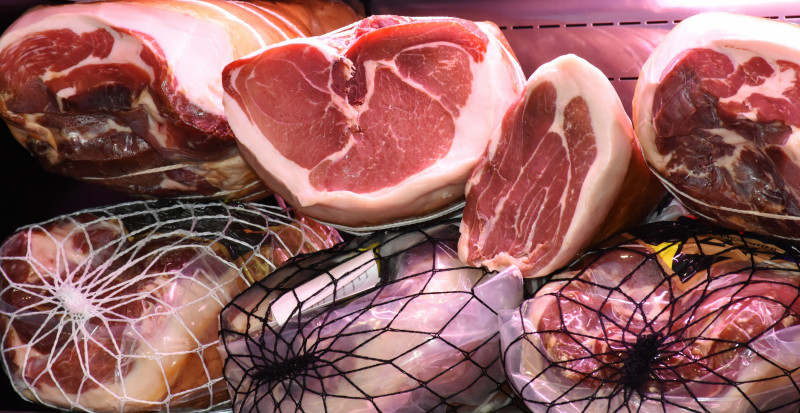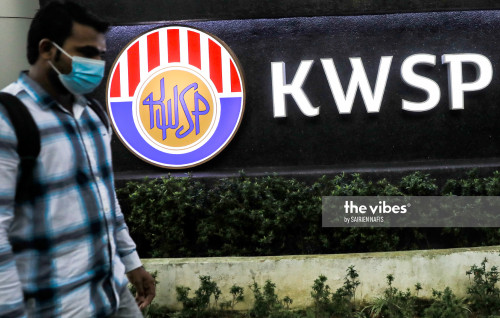NOVEMBER 25th is observed as Meatless Day worldwide. On this occasion, the Consumers Association of Penang (CAP) calls on Malaysians to substantially reduce and where possible avoid eating meat for the benefit of our health and environment.
In 2022, Malaysians consumed an estimated 50 kilograms of poultry meat per person. This puts Malaysia amongst the top global consumers of poultry meat worldwide. Meat production has been proven to have adverse effects on the environment and global climate, and scientists have recommended drastically reducing the amount of meat consumed. However, Malaysian consumers were still reluctant to give up their meat.
While meat is tasty, it comes with a lot of suffering, not only to the animals but to humans who consume it. Meat consumption has conclusively been linked to obesity, heart disease, cancer, diabetes, and many other chronic and deadly diseases.
Heart disease and cancer
Eating more meat enhances our chances of getting sick or dying early. Health statistics consistently show that nations which consume the most meat have the highest incidence of heart disease and cancer.
In a latest study conducted by researchers from Harvard T.H. Chan School of Public Health, it was found that consuming two servings of red meat per week has an increased risk of developing type 2 diabetes compared to eating fewer servings, and the risk increases with greater consumption. This study was published in The American Journal of Clinical Nutrition. They also found that replacing red meat with healthy plant-based protein sources, such as nuts and legumes, or modest amounts of dairy foods, could reduce the risk of type 2 diabetes.
Malaysians should take note of this as the prevalence of Type 2 Diabetes is high among our population. At the prevalence rate of 18.3 percent it is estimated that there are more than 6 million diabetics in Malaysia. One in every five Malaysians has been diagnosed with it, and children as young as five and six years old have been diagnosed with Type II Diabetes.
A study by the International Agency for Research on Cancer (IARC) found "sufficient evidence in humans that the consumption of meat, especially processed meat causes colorectal cancer."
Processed meat includes meat that has been salted, cured, fermented, or smoked – hot dogs, sausages, corned beef, dried meat, canned meat, or meat-based sauces. The finding supports "recommendations to limit intake of meat" – particularly in processed forms, said the IARC.
Damage to ecosystems
Besides the health effects of eating meat, many consumers do not see the magnitude of the environmental impact caused by their meat consumption. There may be no other single human activity that has a bigger impact than livestock farming.
Some 40% of the world’s land surface is used for growing food crops, most of which are used to feed animals. Globally livestock farming generates 18 % more greenhouse gases than transport. Some 70% of the Amazon forests have been deforested for grazing animals.
To get meat an animal has to be slaughtered. Abattoirs are highly industralised production lines with semi-skilled workers toiling in poor conditions. Some of the slaughterhouses are capable of slaughtering 85,000 head of cattle, 70,000 pigs, and 12 million birds daily. The industry is hidden from view. Animal-rights groups are questioning the ethics of the slaughter industry.
We have destroyed vast ecosystems and drained massive resources to support the world's burgeoning livestock herds. Food, water and land resources are directed away from human consumption to feed these animals. These animals produce enormous quantities of waste such as nitrogen, phosphorus, potassium, drug residues, disease-causing organisms, and heavy metals to pollute our water system.
Producing meat is also most inefficient. To produce one kilogram of beef, one needs 6.5 kilograms of grain, 36 kilograms of roughage, and 15,500 cubic meters of water.
Poisoning by antibiotics, hormones, pathogens
70% of antibiotics produced globally are used for livestock. Antibiotics perform two functions: they help animals survive the dismal conditions until slaughter, and they make the animals grow faster. According to the World Health Organisation (WHO), more antibiotics are fed to healthy animals than to human beings.
Livestock are usually given the same antibiotics as humans. Every time an antibiotic is administered, there is a chance that bacteria develop resistance to it. Common pathogens such as Escherichia coli, salmonella or campylobacter will develop into “superbugs” in the presence of antibiotics, and this can infect humans.
Studies have found chicken droppings used to feed cows, animal parts are fed back to animals (cannibalism which can lead to Mad Cow Disease) and maggots are used as a protein source for animals.
There is no denying how delicious meat is. As long as consumers do not see how meat is obtained, they do not mind eating meat. They also do not know much about the meat they are buying. They do not know about the antibiotics, hormones and pathogens found in their meat, the animal cruelty, the environmental destruction caused, and the rubbish fed to animals.
Meat satisfies people. Eating meat does not make a person bad, nor does being a strict vegetarian make the person good. But something has to be done about the way Malaysians get their meat.
Substituting meat for healthy plant protein sources would not only reduce greenhouse gas emissions and climate change, as it would also provide other environmental benefits.
As today is Meatless Day, CAP would like to call on consumers to substantially reduce and where possible avoid eating meat for the sake of our health and environment and at the same time give a thought to the billions of animals that have sacrificed their lives to satisfy their craving for eating meat. – The Vibes, November 25, 2023
Mohideen Abdul Kader is president of the Consumers Association of Penang.
International Meatless Day falls on November 25 every year.






_Datuk_Rusdi_Mohd_Isa._Facebook_pic..png)






